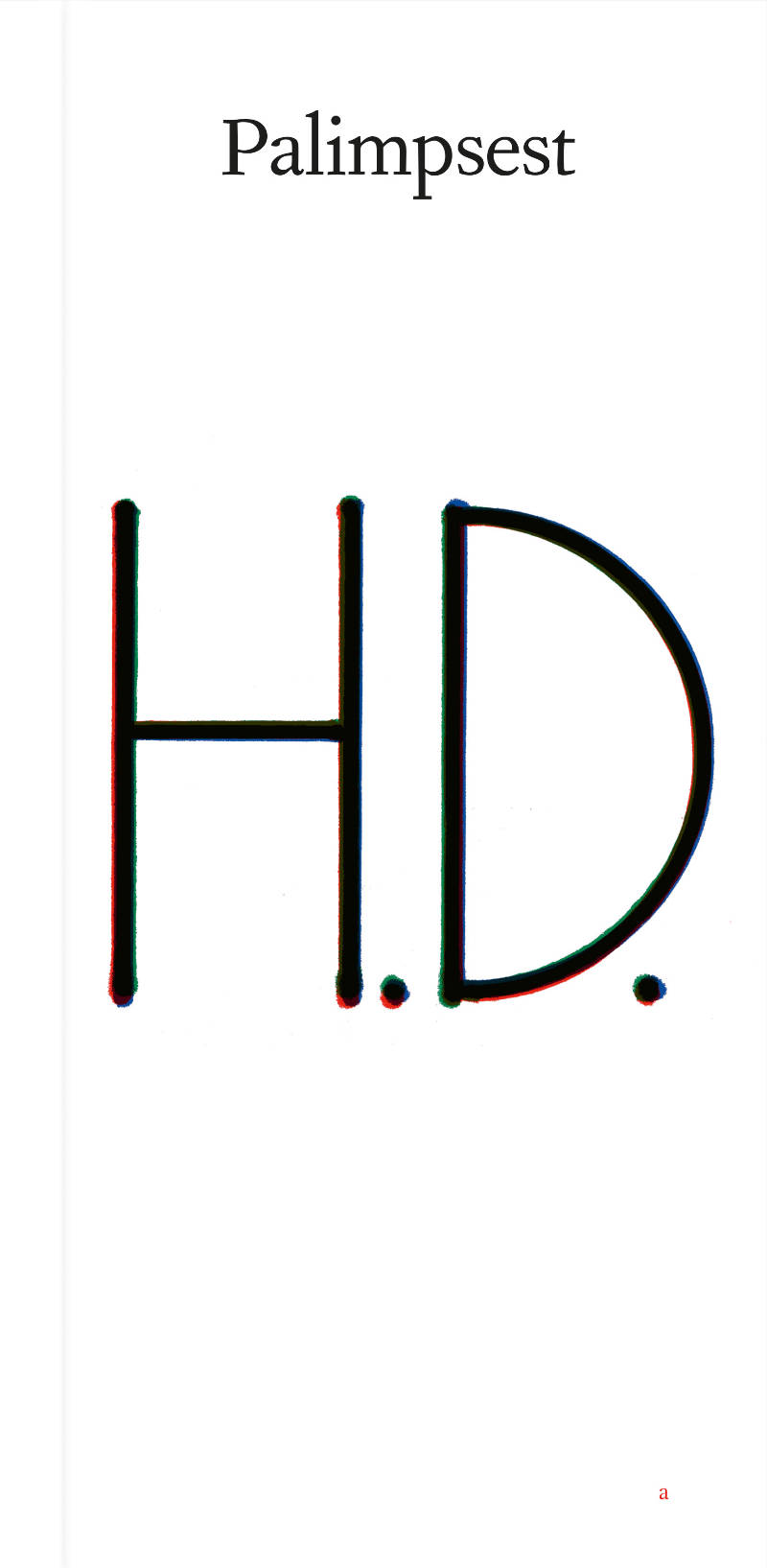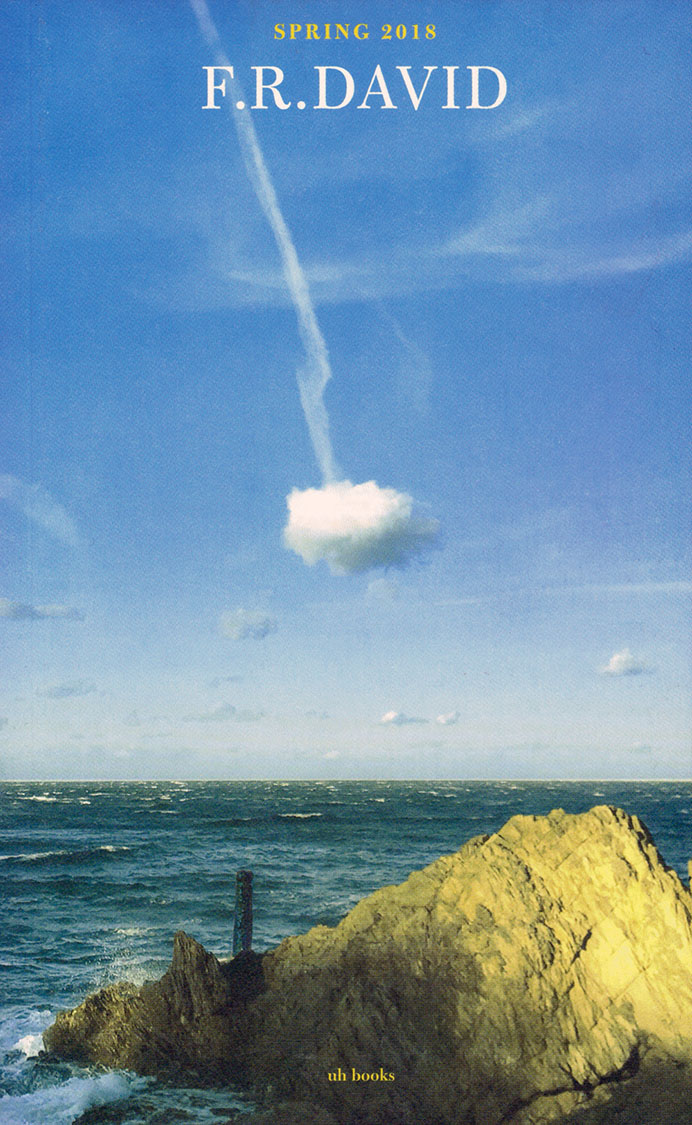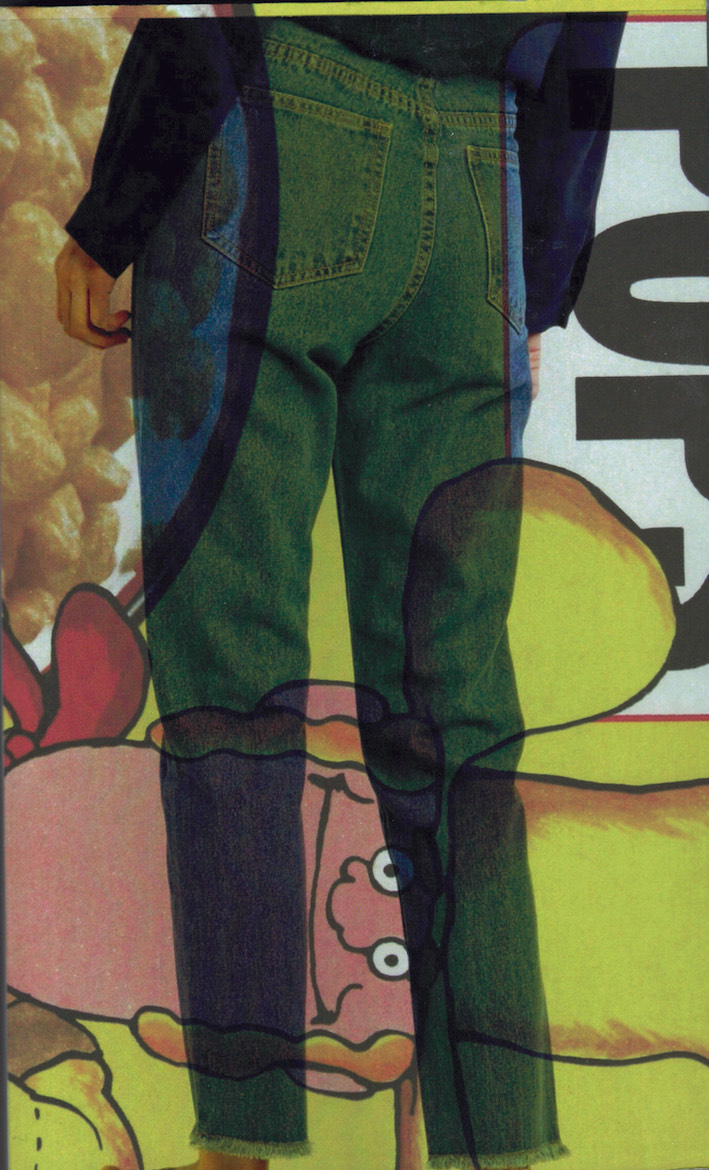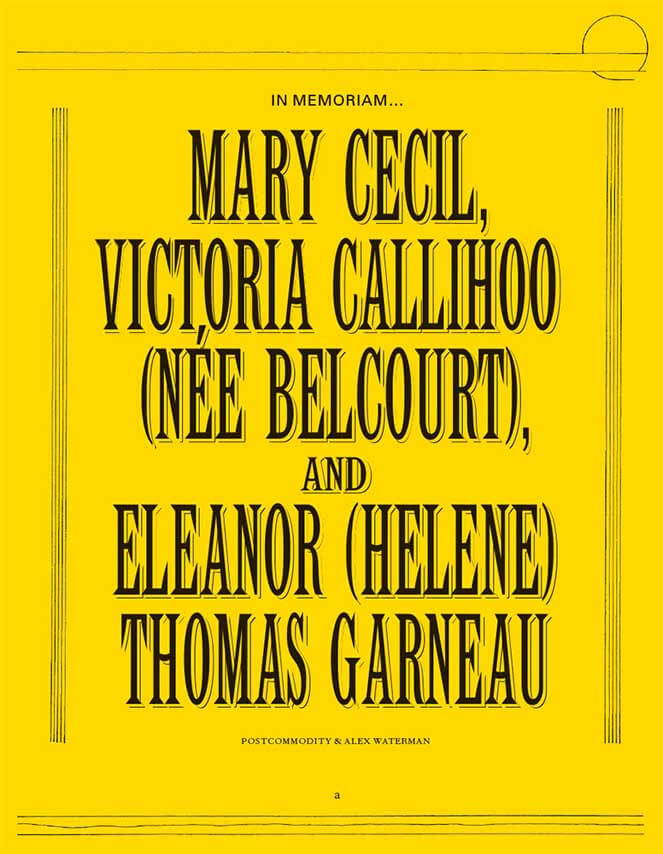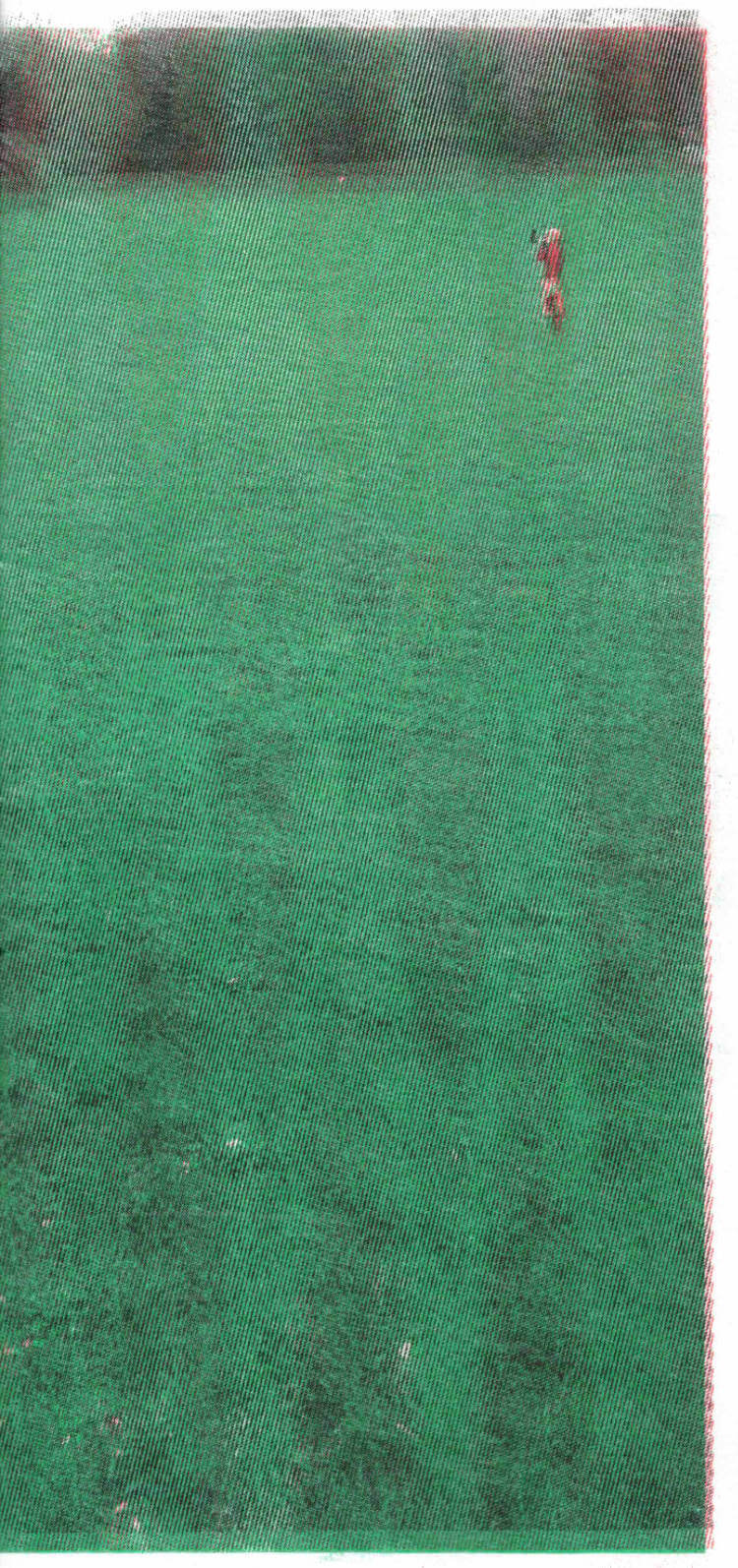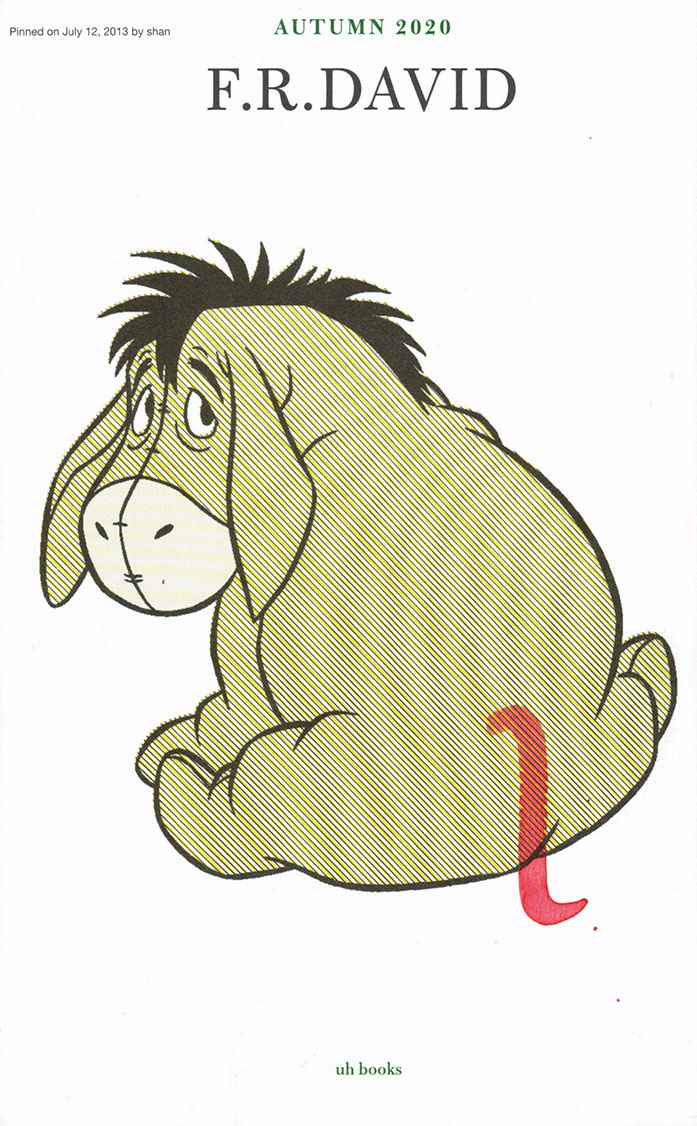
F.R. David - Correctional Facility
Will Holder ed.
F.R.DAVID is a typographical journal, dealing with the organisation of reading and writing in contemporary art practises. The 20th issue, “Correctional Facility” is edited by Will Holder paying attention to difference; and transformations between
accident⎱design 249
acorn⎱oak 293–94, 297–98
adult⎱child 95, 139, 207, 308
alphabetic⎱postliterary 3
alphabetic⎱postalphabetic 3, 5
alphabetic⎱analphabetic 5
analytic⎱linguistic 298
ankh⎱kiss
angles⎱angels 162
aristocrat⎱ass 12
ass⎱man 28
aye⎱eye 160
bad⎱good 130
(outstandingly⎱remarkably)
before⎱after 19, 49, 51, 158,
201, 263, 305
bitter⎱sweet 65, 163, 217
both⎱and 8, 119, 123, 160, 173, 180, 245, 292, 298
cart⎱horse 2, 9
coming into being⎱passing away 318
communism⎱democracy 319
composition⎱improvisation
163, 168, 170
concrete⎱abstract 288
dark⎱light 43, 64, 127, 223,
261, 300, 309, 316
diegetic⎱non-diegetic 145, 193
dropped out⎱drop doubt 160
either⎱or 6, 14, 39, 43, 54, 85, 119, 120, 132, 195, 223, 249, 288
emotional⎱intellectual 297
enthusiastic⎱tempered 13, 78, 205
ἕν καἰ τὀ πᾶν⎱one and all 224
everything⎱fragment 33, 138
everything⎱all things 218–22
experience⎱attention 39, 40, 65, 254–5
green⎱blue 127
high modernism⎱post-structuralist⎱postmodernism 165
radical modernism⎱modernism⎱
postmodernism 4, 164–66
I⎱sigh 160
image⎱word 6, 72, 316–18
Isis⎱Isis 226
jar⎱jars 76, 158, 159
left⎱right 7, 28, 127, 217
meaningful⎱meaningless 258
oak (a⎱ok) 290, 293–94, 297–98
orality⎱textuality 3, 264
phoneme⎱letter 180
phonetic⎱ideogrammatic 297
shit⎱gold †
signal⎱noise 39, 40, 65, 254–55
sweat⎱tears 292
tail⎱bell-rope 151, 154
thesis⎱antithesis 322
written⎱unwritten 158, 296–97
vowel⎱consonant 180–82, 292
we are⎱we ain’t 93
white pawn⎱white pawn 224
word⎱world 8, 12, 138, 160, 165, 166, 180, 183, 260, 265, 287, 298, 300, 315, 317
writing⎱nature 27, 44, 83, 120,
121, 126, 166, 183, 198, 203,
219–20, 252, 297, 318–19
